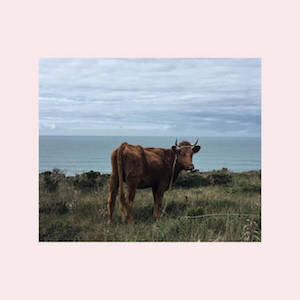Label: Intakt Records, 2021
Personnel - Tim Berne: alto saxophone; Chris Speed: tenor saxophone; Reid Anderson: bass; Dave King: drums.
Formed in 2017, Broken Shadows is a powerful chord-less quartet dedicated to tunes from archetypal avant jazzers such as Ornette Coleman, Julius Hemphill, Dewey Redman and Charlie Haden. The combo - fronted by saxophonists Tim Berne and Chris Speed, with Reid Anderson and Dave King (the rhythm machine of The Bad Plus) filling the bass and drums chair, respectively, is found in spirited form throughout 12 covers, ten of which had been included in a 2019 LP released on the Newvelle Records. Legacy is valued.
It all starts with “Street Woman”, a riveting Ornette Coleman piece whose subsurface tension adrenalizes the saxophonists to deliver freewheeling blows that roar with timbral splendor. They constantly interact with each other, usually embarking on unisons for a start, and then setting knotty phrases and potent riffs against the fibrous matrixes provided by bass and drums. “Toy Dance” and “Ecars” are contagiously swinging rides that follow both angular and sinuous melodic trajectories. The former is blissfully folk in nature while the latter is a freebop incursion.
Reid steps forward on Coleman’s “Comme Il Faut”, where he wallows in nimble movements with chromatic slips and improvisation, and also on Haden’s “Song For Che”, taking the folk intonations and gestural brushwork exhibited by his associates to a solitary bass perfection.
If the Redman-penned “Walls-Bridges” is rhythmically aggressive with the horns channeling all their creative energy into the solos, “Una Muy Bonita” requires sophistication in the latinized groove and rhythmic nuance.
Two Hemphill hymns are added to the track list: “Body”, a grooving and funky effort, and the cherished “Dogon A.D.”, a beautiful 11/8 statement with scratchy arco bass, parallel saxophone playing, and a cool beat upgraded with syncopation.
Because the excitement rarely slows down, it feels great that Coleman’s “Broken Shadows” concludes the record as a melodically arresting lament underpinned by brushed drums and a quiet bass flow that includes pizzicato and bowed techniques.
Rising and expanding with brief yet fraught soloing, this is energy music of the first order.
Grade A-
Favorite Tracks:
01 - Street Woman ► 07 - Dogon A.D. ► 12 - Broken Shadows








































